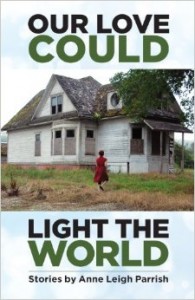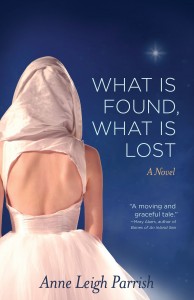Reviews, a Game of Give and Take
We all know how much the world of publishing has changed in the last few years. The gatekeepers have been swept away by self-publishing. Anyone can write a book, and offer it for sale on Amazon. And anyone can write a review and post it. So much democracy! So much freedom! Is this a good thing? The only honest answer I can give is “yes, and no.”
As writers, all we want is for people to love our work. Well, hefty royalties are nice, too, but if you can’t have both, then devoted readers are surely splendid.
The really good ones see things in your work you weren’t even aware of, as if they’re connecting the dots for you, deconstructing you in a way that makes complete sense. You can learn a lot from these top notch folks, and that can be terribly satisfying.
But what do you do about the reviews that really set your teeth on edge? Well, nothing, actually. You must decide if it has merit or not. If it does, that’s better than the ones with little merit.
The sort of review that you can pretty much dismiss right off might say something like, “The book bothered me because it wasn’t what I expected.” I had one reviewer give me a one star rating because the children in my linked story collection, Our Love Could Light The World, swore a lot. This made her uncomfortable. She felt it shouldn’t be allowed. I wanted to sit her down and remind her that these are fictional characters, but that flesh and blood children swear sometimes, too. She had nothing to say about the quality of the story-telling, which irked me no end.
 Even more frustrating are reviews where your reader is smart enough to see what you were trying to do artistically, and then get totally subjective in their interpretation. “This didn’t work for me,” is a line you could see over and over. Why didn’t it work, if you knew what I was trying to do? Because this particular reader has certain expectations and tastes that she was simply unable to set aside when she sat down to assess your book.
Even more frustrating are reviews where your reader is smart enough to see what you were trying to do artistically, and then get totally subjective in their interpretation. “This didn’t work for me,” is a line you could see over and over. Why didn’t it work, if you knew what I was trying to do? Because this particular reader has certain expectations and tastes that she was simply unable to set aside when she sat down to assess your book.
So, how do you write a decent review? First, take yourself out of the picture. Be objective. Be analytical. Unless the book you’re reading falls down on the basics of story-telling – if the plot is wobbly and the characters wooden, for instance – then assume that everything you see on the page is there on purpose.
Take it all at face value and see if you can figure out what the author is really driving at. Delve into the subtext, the story behind the story, if you will. If you have a clear picture about what’s going on, then the book is pretty good. If you don’t, the author missed the mark and it’s okay for you to say so.
 Next, put yourself back in, but be honest. Say flat out that you normally don’t like books like the ones you’re reviewing and say why. Say, “I prefer a straight-forward plot to a tricky one, but that’s just me.” Everyone’s entitled to an opinion, but be fair and say that yours is just an opinion, not an ultimate truth.
Next, put yourself back in, but be honest. Say flat out that you normally don’t like books like the ones you’re reviewing and say why. Say, “I prefer a straight-forward plot to a tricky one, but that’s just me.” Everyone’s entitled to an opinion, but be fair and say that yours is just an opinion, not an ultimate truth.
Compare the book to others like it. If you’re a reviewer worth your salt, you’re widely read, and should be able to put this work in a general field of similar titles. It’s very unlikely that the book won’t remind you of any others. Tell your reader what she can expect by naming these associated titles.
Make sure you tell your reader what the author does well. Even a dull book has some strong moments in it. Avoid language that trashes the work. Never come out and say the book stinks. Itemize things that were “of concern,” or “perhaps less successful.” Be firm, but fair, in other words.
And writers, the best way to take any review, good, bad, or blah is with a grain of salt. Even if you been writing for decades, you need to remember that it’s your work that’s being assessed, not you personally. Something else to keep in mind is that serious reviewers and book bloggers are building their own reputations and their own body of work. Mutual respect is called for, and when obtained, can make for an excellent partnership with those readers who liked your first book and are eager for the next one.
—
Anne Leigh Parrish’s debut novel, What Is Found, What Is Lost, came out in October 2014 from She Writes Press. Her second story collection, Our Love Could Light The World (She Writes Press, 2013) was a finalist in both the International Book Awards and the Best Book Awards. Her first collection, All The Roads That Lead From Home (Press 53, 2011) won a silver medal in the 2012 Independent Publisher Book Awards. She is the fiction editor for the online literary magazine, Eclectica. She lives in Seattle.
What Is Found, What Is Lost: A Novel (She Writes Press, October 2014)
Our Love Could Light The World: Stories (She Writes Press, 2013), Finalist the short story category of the 2014 Next Generation Indie Book Awards; Finalist in both the 2013 International Book Awards and the 2013 Best Books Awards
All The Roads That Lead From Home: Stories (Press 53, 2011), 2012 Independent Publisher Book Awards Silver Medal Winner
Website: www.anneleighparrish.com
Twitter: www.twitter.com/AnneLParrish
Facebook: www.facebook.com/AnneLeighParrish
Category: Contemporary Women Writers, How To and Tips


























Excellent post – as a newbie author I shall keep reading this!
Good post. I have published 10 books and also review on my own blog and for another book review team. In the end, most reviews are only someone’s opinion; even with the most even, balanced one you can usually tell if the writer actually enjoyed the book or not. Book bloggers who don’t like a book but don’t want to say ‘boy, was I glad when I’d finished this one’ often just give a summary of the plot and a non-committal comment about what worked and what didn’t. Like Laura Lee, I think ‘this didn’t work for me’ is a useful phrase, too, because you can then go on to say why it didn’t. It’s a diplomatic way of saying ‘this bit was badly done’; some readers don’t notice the bits that are technically bad, or have lower expectations.
I agree. If a book is weak, I don’t review on Amazon but send a private line if the author has sought a review. Otherwise, I review with the reader in mind, showing what will please. The reviews I hate are ‘Brilliant. Can’t wait for …’ usually meaning the reviewer hasn’t read but seeks a favour.
I don’t put many reviews on my website, but when I do I really give them room. They have to have made a real impact on me. See two posts I did for an Australian writer (though I hardly even got thanked) Jarkata Three Ways is the title of my post.
This month I have a special offer for buyers of my Me-Time Tales: a full review of their book on Amazon and GR
I actually prefer it when reviewers do not express their opinions as objective fact because I don’t think there is such a thing as an objective reading of a text. We all bring a whole host of preferences and background to everything we read. There are certainly more analytical reviews and more practical ones. I do agree that a lot of reviewers these days are too focused on themselves and their reactions and that they often write about their own emotions and forget to actually talk about the technique and so on, but the only reviews that have really gotten under my skin were ones where someone stated a preference as though it were an objective fact and started to lecture on how the book should have been written. (Thus assuming that I had not made conscious literary choices they didn’t like, but that I do not have the skill to execute the book as it objectively should have been done.)
What one agent loves, another hates– always. What one editor loves, another hates– always and what one reviewer loves, another hates– always. So I actually prefer a “this didn’t work for me because” to a “this is what the author should have done.” It tells me what the reader likes and how my book differed. That can either be a weakness in the work or simply a bad fit between book and reader. I don’t mind that people don’t all like the kinds of books I write. It helps me understand how my book fits and how to describe it better so it gets into the hands of the people who want to read the kind of thing it is.
Agreed. It’s a subjective thing, and not all readers are writers: they won’t all have a grasp of the technicalities of writing. What they DO have is an enjoyment of the written word. What they don’t enjoy, someone else will: and a review that gives few stars and not much enjoyment to the author, will quite often give immensely useful information to someone else who likes all the type of things the review did not.
Excellent article.
Thanks so much for writing this! I recently started blogging about books, and I’ve been avoiding reviewing books I disliked because I’m nervous about it. This article had some really great advice about how to do it in (hopefully) a constructive and useful way; in particular, your note about “this didn’t work for me” is really valuable. I thought of that as a way to phrase your dislike of something that acknowledged your own subjectivity… and now I see what a totally useless statement it is!